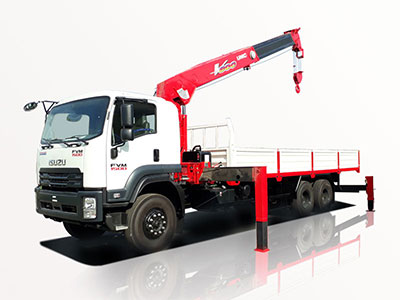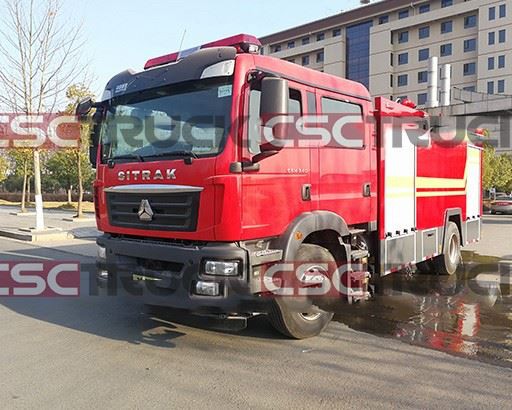The refrigerated truck is a cornerstone of modern logistics, allowing for the transportation of perishable goods across vast distances while maintaining their freshness and quality. Understanding the history behind this innovation is essential, not just for its relevance in the logistics industry but also for its broader impact on food supply chains and global trade.
Introduction to Refrigerated Transportation
Refrigerated trucks, often referred to as “reefers,” have transformed how perishable goods, including food and pharmaceuticals, are shipped. Before their invention, transporting these items over long distances was a challenge that often led to spoilage and waste. The innovation of refrigerated trucks has not only improved the efficiency of supply chains but has also made it possible for consumers to have access to a wider variety of products year-round. In this article, we will explore the origins of the refrigerated truck, its inventor, and its evolution over time.
The Need for Refrigerated Transportation
Challenges in Food Preservation
Before the advent of refrigerated transportation, food preservation depended mainly on drying, salting, smoking, and other methods that did not effectively prevent spoilage during long journeys. This posed significant challenges for merchants and consumers, leading to:
- Limited variety of available fresh produce in certain regions.
- High rates of food wastage, impacting both the economy and food security.
- The need for immediate consumption of perishable goods, limiting distribution capabilities.
Market Demand for Fresh Goods
As populations grew and urban centers expanded, the demand for fresh produce and perishable food items surged. This increased demand called for innovative solutions in transportation and logistics.
The Inventor: A Historical Overview
Ferguson’s Innovative Solution
The story of the refrigerated truck begins with an inventor named Fred W. Jones. In the 1930s, he developed the first practical refrigeration system for trucks, which laid the groundwork for modern refrigerated transportation.
Fred W. Jones: The Pioneer of Refrigerated Trucks
Born in 1893, Fred W. Jones was an African American inventor who played a pivotal role in revolutionizing the logistics industry. His invention led to the widespread adoption of refrigerated transport, which forever changed food distribution. In 1939, Jones received a patent for his invention, which allowed truck operators to maintain a steady and controlled temperature during transportation.
How Jones’ Invention Worked
Jones’ refrigeration unit was unique for its time as it utilized a gas compressor for cooling. This technology operated independently of the vehicle’s engine, ensuring that the refrigeration system could operate effectively even with varying travel speeds and conditions. This reliability was crucial for maintaining perishable goods during transit.
Evolution of Refrigerated Trucks
From Innovation to Industry Standard
After Jones’ patent, the technology quickly evolved. Other companies began integrating refrigeration systems into their trucks, leveraging Jones’ principles while making technological advancements. Key milestones include:
- Integration of electric refrigeration units in the 1950s.
- Enhanced insulation materials that improved energy efficiency.
- Digital monitoring systems for real-time temperature tracking in the 21st century.
Modern Refrigerated Trucks
Today, refrigerated trucks come equipped with advanced technology that monitors and adjusts temperatures, humidity levels, and even airflow. These advancements help businesses adhere to safety and quality standards while also reducing wastage.
The Importance of Refrigerated Transportation Today
Impact on Food Safety and Quality
Refrigerated trucks play a crucial role in ensuring that food safety guidelines are met. With strict regulations governing food transportation, these vehicles help in:
- Preventing the growth of harmful bacteria.
- Maintaining the nutritional value of fresh produce.
- Reducing spoilage and waste, ultimately saving money for businesses and consumers.
Global Trade and Economic Growth
Refrigerated transportation has significantly contributed to global trade, allowing countries to export and import perishable goods without fear of spoilage. This has promoted economic growth, created jobs, and increased the variety of products available in markets.
Challenges Facing the Refrigerated Truck Industry
Energy Consumption and Environmental Impact
While refrigerated trucks have revolutionized transportation, they are significant consumers of energy. This has raised concerns regarding their environmental impact. The industry is now exploring various solutions, including:
- Alternative fuels such as biodiesel.
- Improved aerodynamics and insulation techniques that reduce energy consumption.
- Renewable energy options for refrigeration systems.
Technological Advancements and Adaptation
As technology continues to advance, the refrigerated truck industry must adapt to stay competitive. Innovations such as:
- Telematics for tracking vehicle performance.
- Advanced refrigeration technologies that use less energy.
- AI-driven logistics for enhanced supply chain management.
Practical Examples of Refrigerated Truck Utilization
Food Distribution
One of the most visible applications of refrigerated trucks is in the food industry. Major supermarket chains rely on these vehicles to transport their products from farms and manufacturers to retail stores, ensuring freshness and quality. For instance:
| Supermarket Chain | Refrigerated Truck Usage |
|---|---|
| Walmart | Utilizes a fleet of over 6,000 refrigerated trucks for perishable goods. |
| Costco | Employs refrigerated trucks to maintain product integrity during transport. |
| Amazon Fresh | Has implemented refrigerated vans in their last-mile delivery for groceries. |
Pharmaceutical Logistics
Another critical area where refrigerated trucks are utilized is in the pharmaceuticals sector. Vaccines and medications often require specific temperature control to remain effective. For instance:
- COVID-19 vaccines must be transported at ultra-low temperatures, at around -70°C, requiring specialized refrigeration trucks.
- Insulin and other temperature-sensitive medications also rely on refrigerated transport for safe distribution.
Tips for Maintaining Refrigerated Trucks
Regular Maintenance Checks
Maintenance is crucial for ensuring refrigerated trucks operate efficiently. Key tips include:
- Regular inspections of the refrigeration unit, checking for leaks or failures.
- Monitoring insulation integrity to ensure no heat transfer occurs.
- Routine checks of temperature monitoring systems to ensure accuracy.
Best Practices for Loading and Unloading
Proper loading and unloading can significantly impact the performance of refrigerated trucks:
- Avoid overcrowding the cargo area, which can restrict air circulation.
- Pre-cool the truck before loading to ensure optimal temperature during transport.
- Use appropriate loading techniques to avoid damaging any goods.
FAQ Section
Who invented the refrigerated truck?
The refrigerated truck was invented by Fred W. Jones in the 1930s, who developed the first practical refrigeration unit for trucks.
What are some benefits of refrigerated trucks?
Refrigerated trucks help to maintain the freshness of perishable goods, reduce spoilage, enhance food safety, and support global trade.
How do refrigerated trucks work?
Refrigerated trucks operate using a refrigeration unit that cools the cargo area, maintaining a consistent temperature during transport, independent of the vehicle’s engine.
What types of goods are transported in refrigerated trucks?
Refrigerated trucks transport various goods, including fresh produce, dairy products, seafood, meat, and pharmaceuticals that require temperature control.
What are some challenges faced by the refrigerated truck industry?
Challenges include high energy consumption, environmental impacts, and the need to adapt to technological advancements for efficiency and cost-effectiveness.
How can businesses ensure compliance with food safety regulations in refrigerated transport?
Businesses can ensure compliance by regularly monitoring temperatures, implementing rigorous maintenance protocols, and maintaining proper documentation of transportation conditions.



